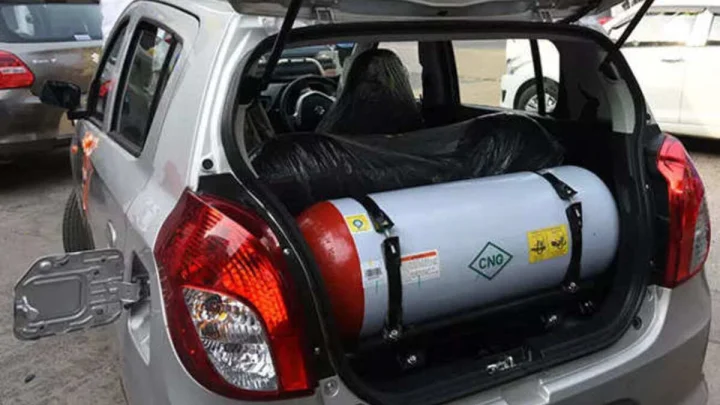The Federal Government disclosed that over 100,000 petrol-powered vehicles have been converted to Compressed Natural Gas (CNG) in the past year.
The Programme Director and Chief Executive of the Presidential Compressed Natural Gas Initiative, Michael Oluwagbemi, disclosed this at a sensitisation programme workshop in Lagos on Thursday.
Oluwagbemi said that as the Federal Government ramped up efforts to cushion the effects of fuel subsidy removal, the initiative had achieved a major success in the last year.
According to him, the number of CNG-powered vehicles in the country had risen from fewer than 4,000 to nearly 100,000 in just over a year.
Oluwgbemi highlighted a growing level of private sector participation, citing the Dangote Group’s recent rollout of 4,000 CNG trucks as a testament to industry confidence in the programme.
READ ALSO
The PCNGI boss revealed that the next phase of the initiative targets 250,000 vehicle conversions in partnership with private operators.
On safety concerns, Oluwagbemi clarified that CNG is significantly safer than conventional fuels.
“The President’s vision was clear: reduce the pressure on citizens by leveraging domestic energy sources like natural gas to create a more sustainable, cost-effective transportation system.
“Public awareness was initially low, but Nigerians are now embracing CNG across the country.
“It’s not just a government project—businesses are investing because they see the benefits.
“So far, over $1bn has been invested in the sector, including $280m from Dangote Group, $28m from Arita LNG, and contributions from other stakeholders like Femadec, Greenview, and Greenville.
“From just seven conversion centres last year, we now have 265 centres nationwide. We’ve also created over 10,000 direct jobs and grown from 20 to 60 operational refuelling stations, with 175 more underway.
“CNG is 18 times less explosive than petrol and eight times less than diesel. Most explosion reports are either exaggerated or involve petrol-powered vehicles, not CNG.”















